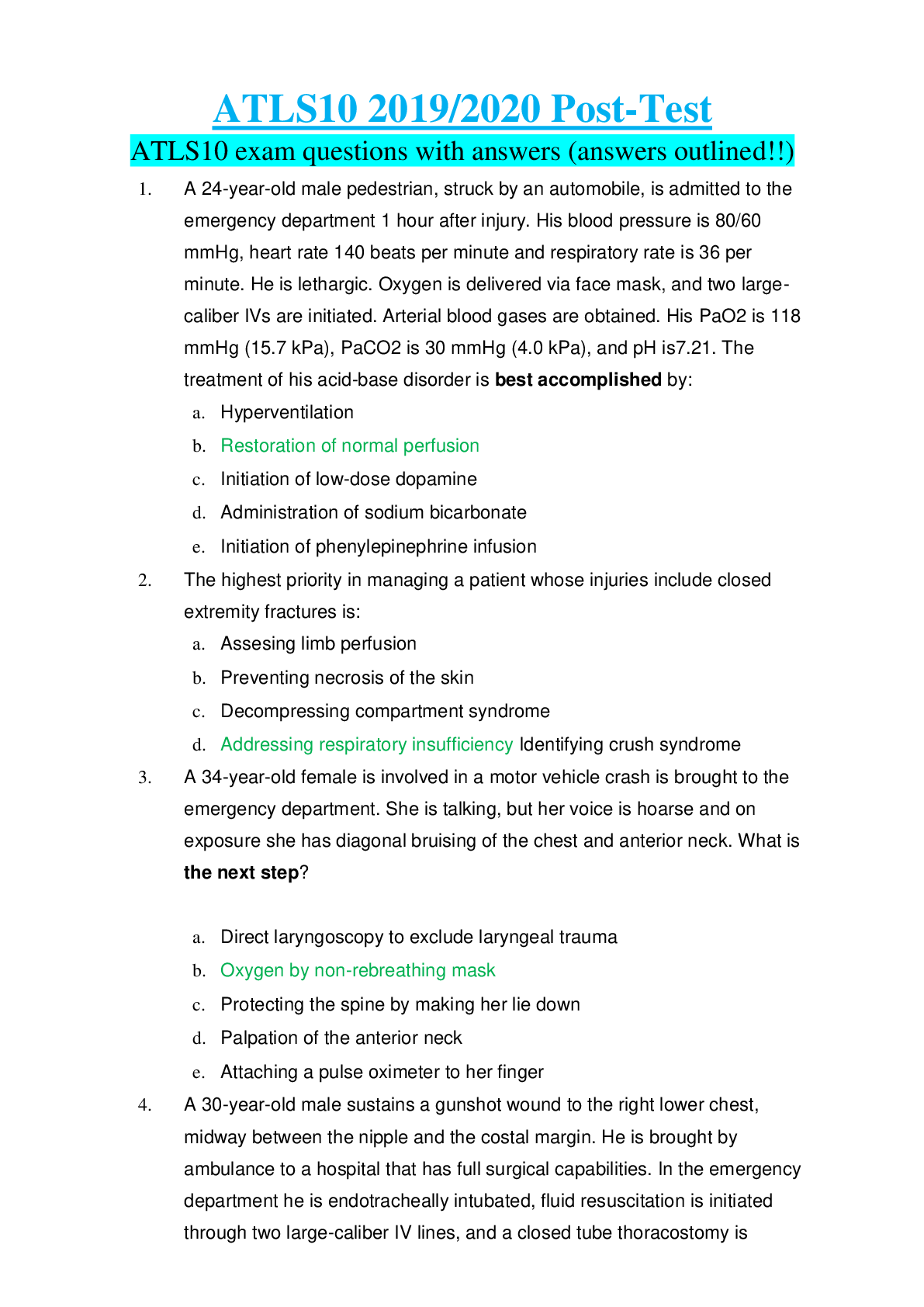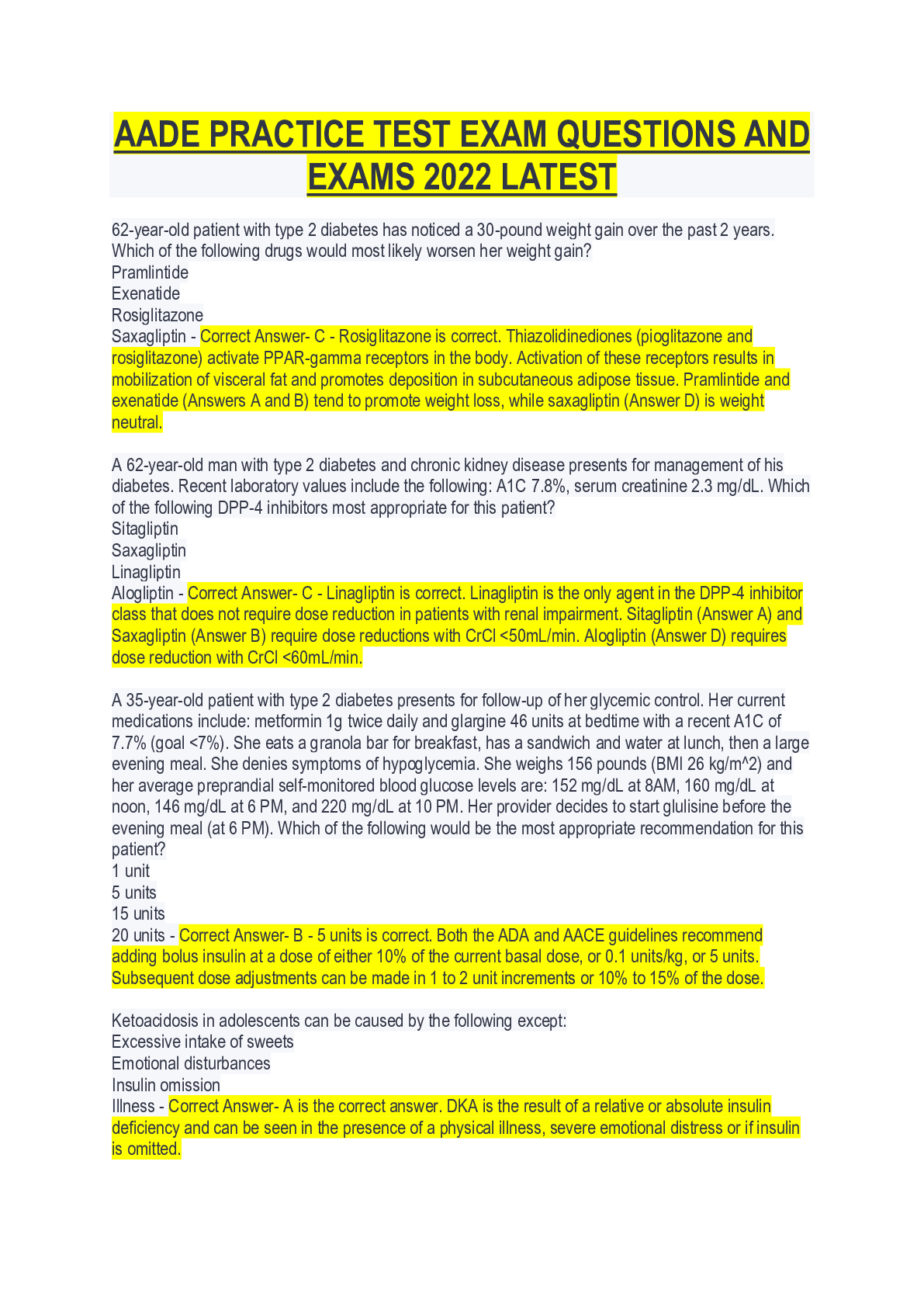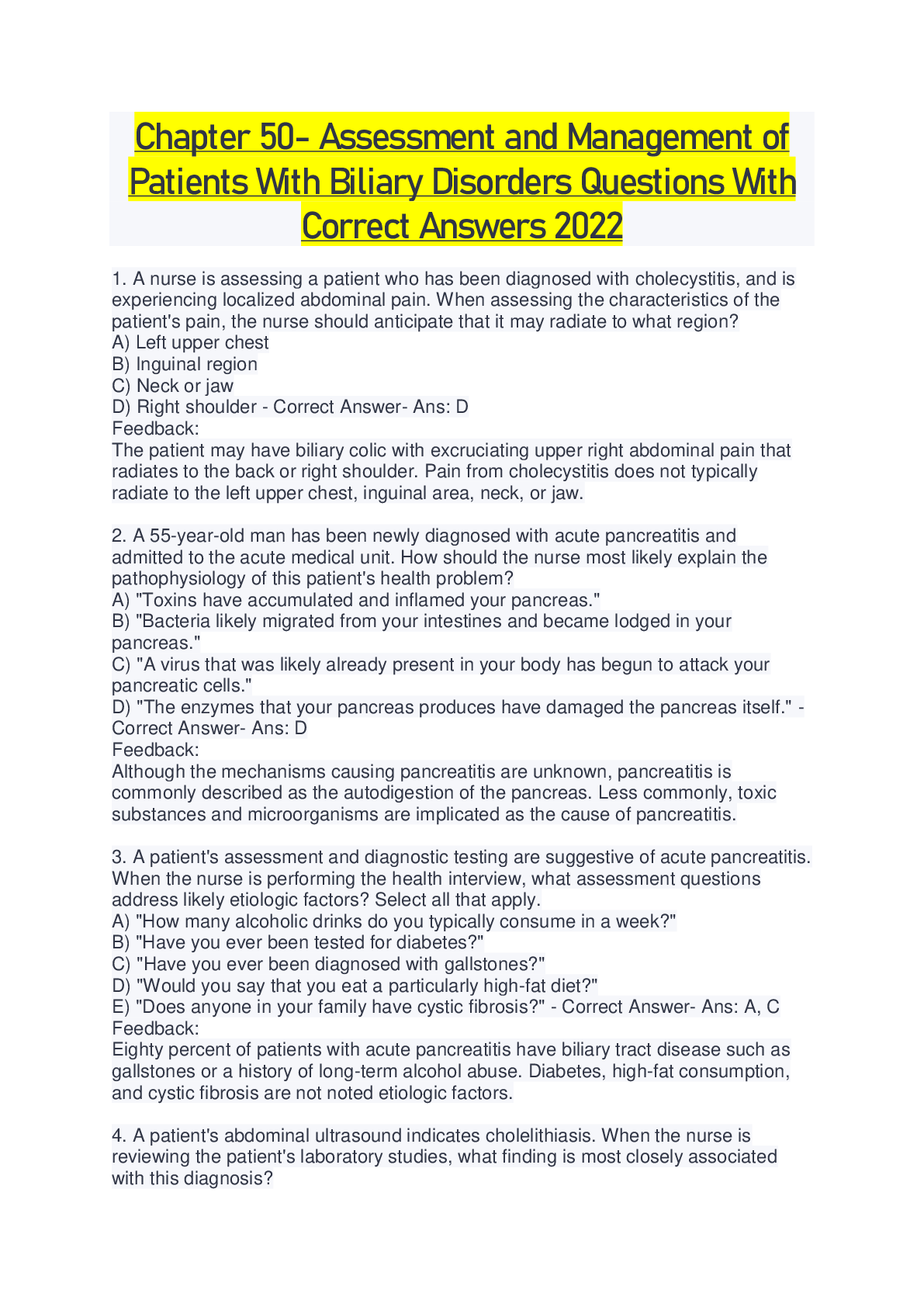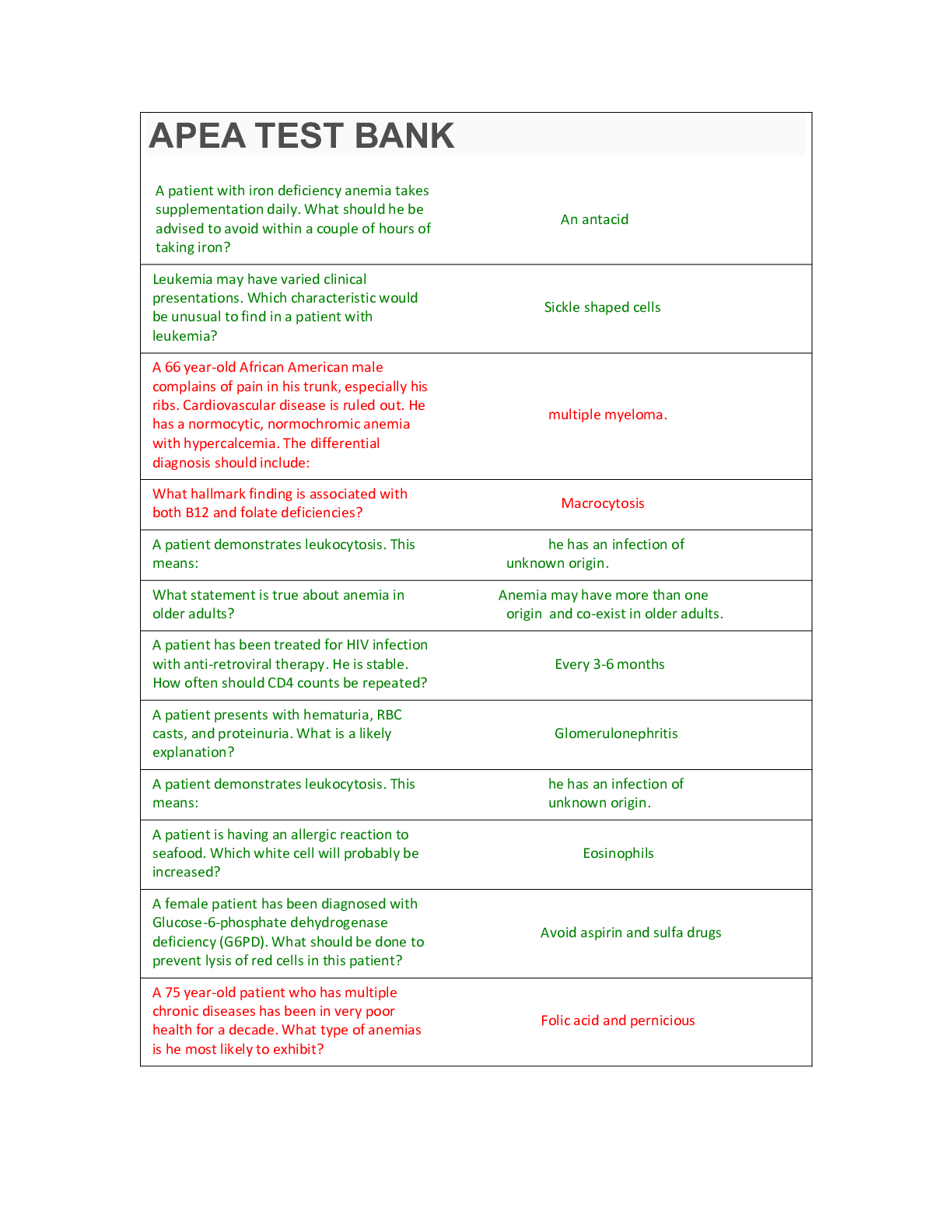*NURSING > QUESTIONS & ANSWERS > Chapter 08- Economic Influences Stanhope- Foundations for Population Health in Community-Public Hea (All)
Chapter 08- Economic Influences Stanhope- Foundations for Population Health in Community-Public Health Nursing, 5th Edition Questions And Answers 2022-2023 Latest Update
Document Content and Description Below
Chapter 08- Economic Influences Stanhope- Foundations for Population Health in Community-Public Health Nursing, 5th Edition Questions And Answers 2022-2023 Latest Update 1. A nurse is discussing ... how health care rationing occurs in the United States. Which of the following would most likely be discussed as the criterion that is used to ration health care? a. Clinic operating hours b. Ability to pay for services c. Availability of local provider services d. Transportation availability - ANS: B Because there are not enough health care services available to provide desired services to everyone, the focus has been on reducing costs by controlling the use of services. All of the factors listed affect health care access and therefore affect health care rationing (either directly or indirectly). The primary determinant, however, is the ability to pay for services. Without this ability, services are denied; therefore, those without insurance that is accepted by a provider or institution or who do not have the money to pay out of pocket are unable to obtain services. 2. Which of the following must a nurse be knowledgeable about to make decisions regarding the most cost-effective way to allocate health care resources? a. Insurance resources b. Health care rationing c. Health economics d. Medical technology - ANS: C Economics is the science concerned with the use of resources; health economics is concerned with how scarce resources affect the health care industry. Insurance resources, health care rationing, and medical technology are important components of health economics but by themselves do not provide the broad understanding called for in this question. 3. Which of the following individuals would most likely experience a barrier when accessing health care? a. A 40-year-old female who speaks English b. A 25-year-old female with health insurance c. A 50-year-old male with hypertension d. A 30-year-old male who is unemployed - ANS: D Barriers to accessing care include the inability to afford health care, lack of transportation, physical barriers, communication problems, childcare needs, lack of time or information, or refusal of services by providers. The unemployed male is most likely to experience a barrier because of not having a job, which may reduce his access to health insurance and limit his income. Those who speak English and have health insurance should both find it easier to access health insurance than someone who is unemployed as communication problems and lack of insurance are barriers to receiving care. Medical diagnoses, such as having hypertension, do not present a barrier to accessing health care. 4. Which person is most likely to be uninsured? a. An 82-year-old woman with chronic medical problems b. A 2-year-old whose mother is on welfare c. A 50-year-old business man who works for a large corporation d. A 24-year-old man who works part-time at a small business - ANS: D Young adults (ages 19 to 25 years) account for a disproportionately large share of the uninsured, largely due to their low incomes. The elderly person would be eligible for Medicare, and the 2-year-old is probably eligible for Medicaid. The man who works at the large corporation probably has health insurance, because most large businesses provide it. 5. Which of the following is most closely correlated with poor health? CONTINUES... [Show More]
Last updated: 2 years ago
Preview 1 out of 9 pages

Buy this document to get the full access instantly
Instant Download Access after purchase
Buy NowInstant download
We Accept:

Reviews( 0 )
$11.00
Can't find what you want? Try our AI powered Search
Document information
Connected school, study & course
About the document
Uploaded On
Dec 09, 2022
Number of pages
9
Written in
Additional information
This document has been written for:
Uploaded
Dec 09, 2022
Downloads
0
Views
92



















 ans.png)

 answers.png)

 ans.png)

